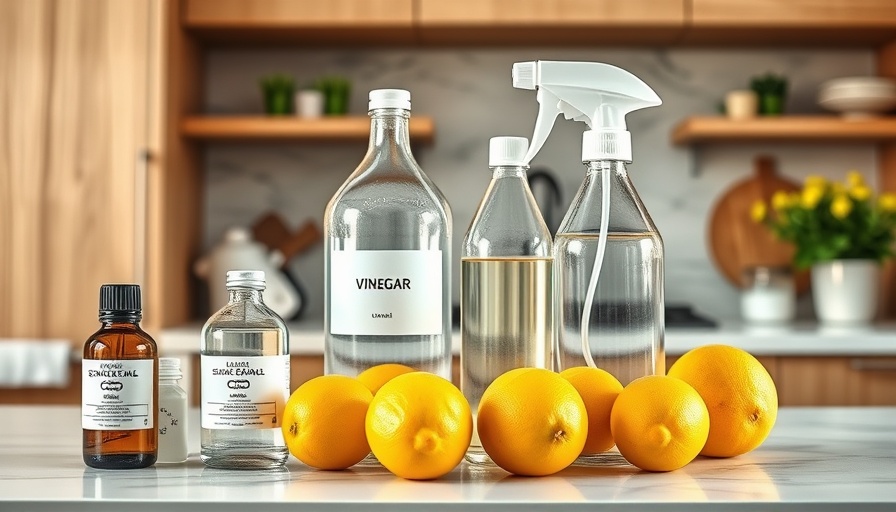
Why Homemade Cleaning Solutions Are Gaining Popularity
In recent years, the trend of creating homemade cleaning solutions has surged, driven by a growing awareness of the harmful effects of chemicals found in many commercial products. With consumers becoming more eco-conscious, the homemade cleaner movement presents a sustainable alternative that not only benefits individual households but also the environment. By utilizing ingredients most people already have at home, crafting effective cleaning sprays is now seen as a practical and responsible choice.
The Cost-Effective Approach
One of the most compelling advantages of homemade cleaners is their affordability. Many common ingredients—like vinegar, baking soda, and essential oils—can be found in most cupboards. With a small investment in reusable spray bottles, households can potentially save hundreds of dollars per year on cleaning supplies. This budget-friendly approach is especially appealing for large families or those looking to minimize expenses, making effective cleaning accessible to all.
Easy Recipes for Every Cleaning Need
As highlighted by Alyssa Gautieri in her exploration of homemade cleaning solutions, a variety of simple recipes can be tailor-made for different surfaces and uses. Here’s a closer look:
1. All-Purpose Cleaner With Dish Soap
This simple cleaner’s formulation includes just ¼ teaspoon of dish soap, one cup of water, and optional essential oil. Used in combination with a microfiber cloth, it effectively battles greasy fingerprints and stains on surfaces like countertops and stainless steel appliances.
2. Scented All-Purpose Cleaner
This delightful concoction offers both cleaning power and a pleasant aroma. Combining one part vinegar with one part water and infusing it with lemon rind and rosemary sprigs for a week enhances its effectiveness. Just be cautious about using vinegar on granite surfaces, as it can etch the stone.
3. DIY Glass Cleaner
A simple blend of 2 cups of water, ½ cup of vinegar (white or apple cider), and ¼ cup of rubbing alcohol can leave glass surfaces sparkling. Optional drops of orange essential oil can add a fresh scent. This formulation rivals store-bought cleaners in performance without the unwanted chemicals.
4. Natural Stone Cleaner
For those who want to care for natural stone surfaces, a dedicated cleaner typically consisting of gentle ingredients provides the needed protection without risking damage. Always consult specific care guidelines for the best results on various surface types.
Safety is Key: Labeling Your DIY Cleaners
When crafting your own cleaning sprays, safety should always come first. It's vital to label each bottle clearly with its content to avoid confusion, especially in homes with children or pets. Understanding what’s in each spray not only enhances safety but also empowers users by knowing precisely what they are applying around their living space.
Best Practices for Using DIY Cleaners
To reap the greatest benefits from homemade cleaners, a few best practices should be employed:
- Test Before Use: Always test a new cleaner on a small, inconspicuous surface to ensure there is no adverse reaction.
- Maintain Clean Tools: Use clean cloths and spray bottles to avoid cross-contamination.
- Store Properly: Keep all cleaners out of reach of children and pets, and store them in a cool, dry place.
Conclusion: Embracing a Healthier Cleaning Routine
With the growing trend towards health-conscious living, creating your own cleaning sprays is not just a trend; it’s a sustainable lifestyle choice that brings affordability, effectiveness, and safety into one package. By swapping out store-bought cleaners for these easy-to-make solutions, you can contribute positively to your family's health and the environment. So why not take the plunge and try crafting your own cleaning supplies? You might find that they’re not only effective but the sweet scent of success is all around your home.
For more tips and tricks on creating a healthier, sustainable living space, stay informed with continued learning on best practices in home maintenance.
 Add Row
Add Row  Add
Add 




 Add Row
Add Row  Add
Add 


Write A Comment